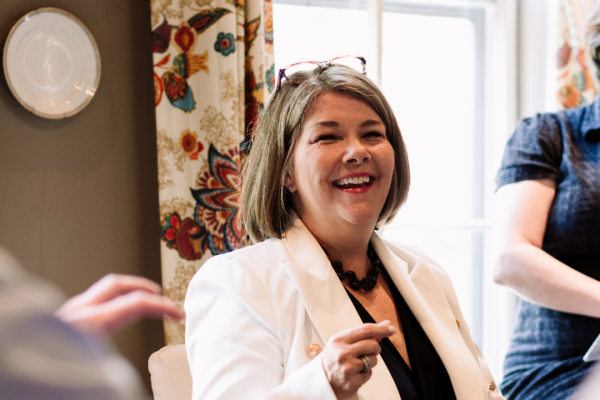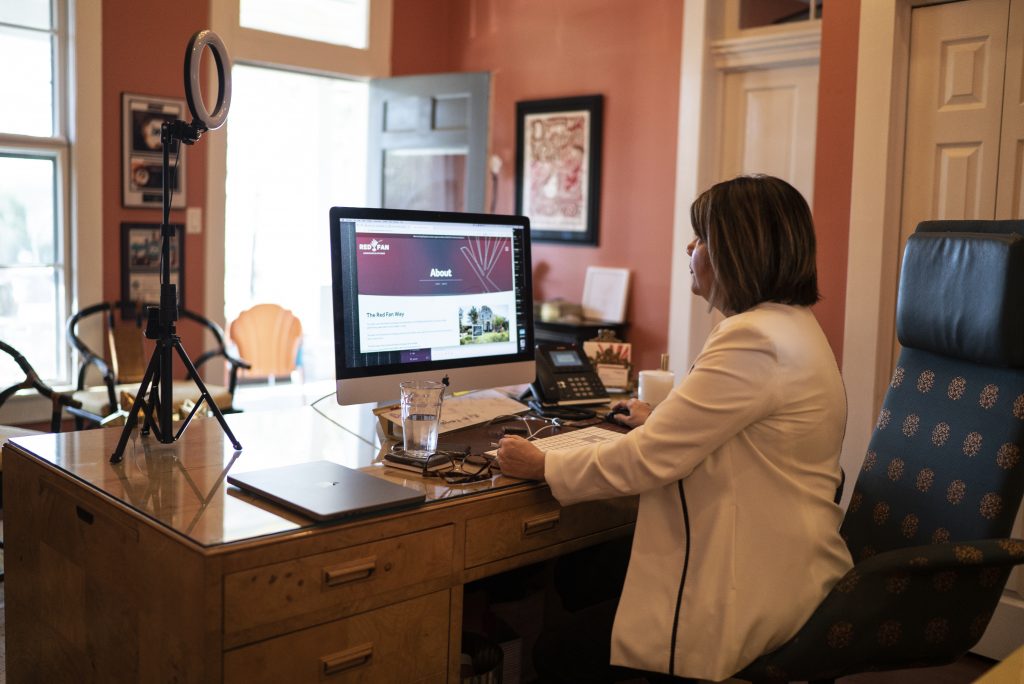Being a company leader is tough these days…
We’ve been in a state of constant stress for so long in our country, and there hasn’t been a moment that CEOs and their teams aren’t feeling the need to react to something. It has been an onslaught of issues from how to handle procedures and employee stress around COVID, determining the new normal of a work environment, how to respond to issues around gun control, how to respond to the Russia/Ukraine war, women’s rights and employees with differing views on abortion and so much more.
Almost everyone is constantly carrying a level of stress and sadness into their jobs and in their personal lives. Employees are looking to leadership for answers. Sometimes we just don’t have the answers, and it’s OK. Great leaders communicate with compassion and a genuine sense of vulnerability.
Sure, some leaders are fast to take a stand and make a public statement. But more leaders in this country know they need a minute to think, to make sure they are communicating and listening internally to their employees, partners and customers. They know they need to represent the values of the company instead of their personal political or even religious stance.
The reality is that we have CEOs with personal beliefs. We have company values, and on top of that, we have an employee base made up of individuals with their own values. Employees will join and stay at a company that respects them and upholds values that align with theirs. The role of a CEO is to keep a company growing and successful, and without great people, that doesn’t happen. CEOs don’t expect everyone to uphold the same political or religious beliefs, especially as a company adds employees and expands. Yet much of what CEOs face right now is tied to these exact personal and sensitive topics: Gun control, pro-abortion rights or those against such rights, Republican or Democrat, and the list goes on. CEOs must bring people together instead of allowing any division to grow, and taking on that role during such emotionally charged times can be really difficult. The CEOs having the most success at this trying task are listening to concerns instead of stifling all discussion. They are leading with empathy but standing strong on the company’s overall vision and goals. You can’t ignore that a business is made up of people, but you can respect those people in a way that shows they are being heard, and they are valued.
I know I respect CEOs who care to reflect and ask for opinions and are open with their staff about subjects or concerns pulling at their heart. Building trust comes from being vulnerable with those around you. It’s hard to take that risk at times, but it’s also what makes a leader accessible and truly courageous. The ultimate vulnerable action is when a CEO opens up conversations and talks from the heart vs. immediately throwing down an uninformed plan of action in reaction, feeling that’s what makes him or her a leader. A quote that hits this straight on is this one from Brené Brown: “A brave leader is someone who says I see you. I hear you. I don’t have all the answers, but I’m going to keep listening and asking questions.”
Though company values are often drafted and mapped into culture, it’s on these tougher topics that company values need to be the absolute guiding force, and CEOs need to draw upon them. This is when CEOs need to call upon a diverse group of trusted advisors and peers around them to explore ideas, and determine how to respond to employees and external stakeholders. At the same time, they must consider:
- How to measure action
- How actions match company values
- Whether any areas of a company response might cause key stakeholders concern
- How these concerns should be acknowledged and addressed
The CEO’s statements and actions on highly politicized topics will not please everyone. Some will want a firm stance one way or the other. Some will even boycott a company that takes a stance contrary to their own. All these risks need to be considered, as does a plan for addressing groups that may not be happy with decisions or lack of decisions a company leader makes.
It’s not easy to be a respected and successful leader today. However, it’s an exciting opportunity for many leaders to lead by example and spend time rethinking their approach. A chance to shake off the idea that he or she needs to have all of the answers. It is a perfect time to tap into the inner circle of people best equipped to help them explore topics thoroughly and to bring company values to life during good and bad times in ways that are meaningful to employees with diverse backgrounds.
When it comes to the struggle around whether vulnerability presents as a weakness, Brown helps defend vulnerability with these insightful quotes:
“Vulnerability sounds like truth and feels like courage. Truth and courage aren’t always comfortable, but they’re never weakness.”
“The courage to be vulnerable is not about winning or losing. It’s about the courage to show up when you can’t predict or control the outcome.”
Now this may sound like we’re asking CEOs to walk into the lion’s den, but it’s really about adopting a mindset of being willing to explore and uphold the values of the company and confidently being present to keep listening and talking, no matter what. You’re not scripted. You’ve taken the time to consider the issues at hand, and you are keeping an open mind. You’re able to demonstrate empathy and a thoughtful process toward decision-making.
A little scary? Maybe, but you’re genuine. You’re not promising answers on the spot, you’re ready to listen and you’re committed to getting to a stance that works best for the company. Now that’s a good start!
Kathleen Lucente
President and Founder
Red Fan Communications







